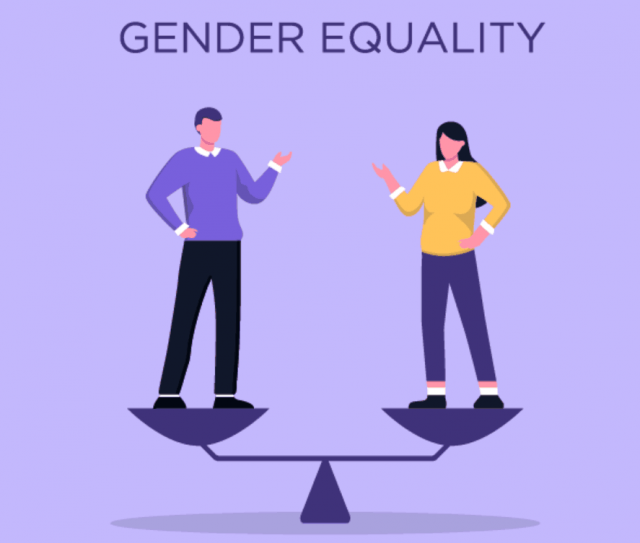The United Kingdom has dropped from 15th to 21st in this year’s Global Gender Gap Index, compiled by the World Economic Forum (WEF) and published on Tuesday.
Iceland was the most gender-equal country in the world for the 11th time in a row.
Women will have to wait another ninety-nine years for full global gender equality, according to the report, which cites politics as the area where the least progress has been made in closing the gender gap.
Klaus Schwab, the founder and executive chairman of the WEF said this year’s report “highlights the growing urgency for action” and “without the equal inclusion of half of the world’s talent, we will not be able to deliver on the promise of the fourth industrial revolution for all of society.”
He added, “At the present rate of change, it will take nearly a century to achieve parity, a timeline we simply cannot accept in today’s globalised world, especially among younger generations who hold increasingly progressive views of gender equality.”
The economic gender gap has also slightly widened year-on-year, although there were 2 per cent more women in managerial positions than in 2018. The report attributed the economic gender gap to “stubbornly” low levels of women in managerial or leadership positions, wage stagnation, labour force participation and income.
It highlighted that many of the roles in which women have traditionally been highly represented have been hit hardest by automation: for example, retail and white-collar clerical roles.
Conversely, tech sectors appear to attract more men: only 12 per cent of cloud computing staff and 15 per cent of engineering workers were female, and just over a quarter (26 per cent) of those working in data and AI were women. The two sectors in which women outnumbered men were the people and culture and content production sectors.
Britain’s booming tech industry may explain, therefore, why Britain scored only 58th globally in the “economic participation and opportunity” sub-category. When it came to wage disparity, Britain ranked even lower, at 102nd.
In politics, the UK ranks 7th out of countries that have had female heads of state over the past fifty years, but lags behind at 76th when looking at the number of women that currently hold ministerial positions.
Whilst Britain slid down the global ranking, its score from last year only dropped marginally, but lack of progress led to other countries overtaking it. In particular Spain improved hugely on its 2018 position, leap-frogging twenty-one countries to claim 8th position in the index.
The drop in the UK’s index position has led to employment experts calling on the new government to implement tougher rules to tackle discrimination in the workplace and compel businesses to offer more flexible working opportunities.
Dr Jill Miller, diversity and inclusion adviser at the Chartered Institute of Personnel and Development (CIPD), said the report illustrates that UK’s progress on gender equality was “far too slow”.
“The thought that future generations will still be having the same dialogue as we’re having now is unacceptable,” she said, calling on hirers to adopt the “happy to talk flexible working” tagline in their recruitment.
The CIPD have previously called for a reform of parental leave policies and for more affordable childcare.
“Business can have a significant impact on wider issues such as occupational segregation – especially in future skills sectors – as well as looking at whether their own people management practices are fair and inclusive to ensure women can reach their potential and rise to the top ranks,” she said.
Sam Smethers, chief executive of the Fawcett Society, called for stronger employment regulations to tackle discrimination, including the right to force male colleagues to disclose what they are earning if there is a suspicion of pay discrimination.
“We need a strategy for gender equality that addresses intersectional inequality, recognising that women of colour are doubly disadvantaged, tackles the underlying causes of the gap and removes the barriers to women’s economic and political participation,” she said.
“The fact that the UK has slipped down the international league tables and it will take generations to close the gender pay gap should act as a big wake-up call for the government.”
Suki Sandhu, founder and CEO of INvolve, highlighted the lack of women in senior roles evidenced in the WEF report.
“What we need to be seeing is a big focus on recruitment and retention of women in the workplace, ensuring that there is equality at the hiring process and that talent is being nurtured in the pipeline,” he said.
“To ensure we see this long-term change, we need to be championing women in senior positions, showcasing fantastic role models for future generations and ensuring that women feel that they belong in leadership positions. There isn’t an overnight solution to this, and it requires robust processes to ensure any changes actually have an impact on organisations.”
The full report can be found here.
19th December 2019.









